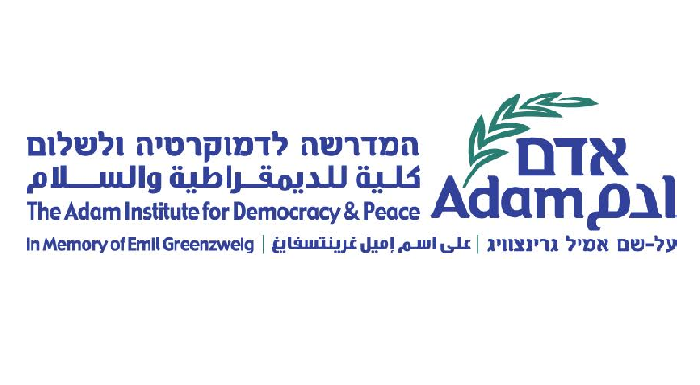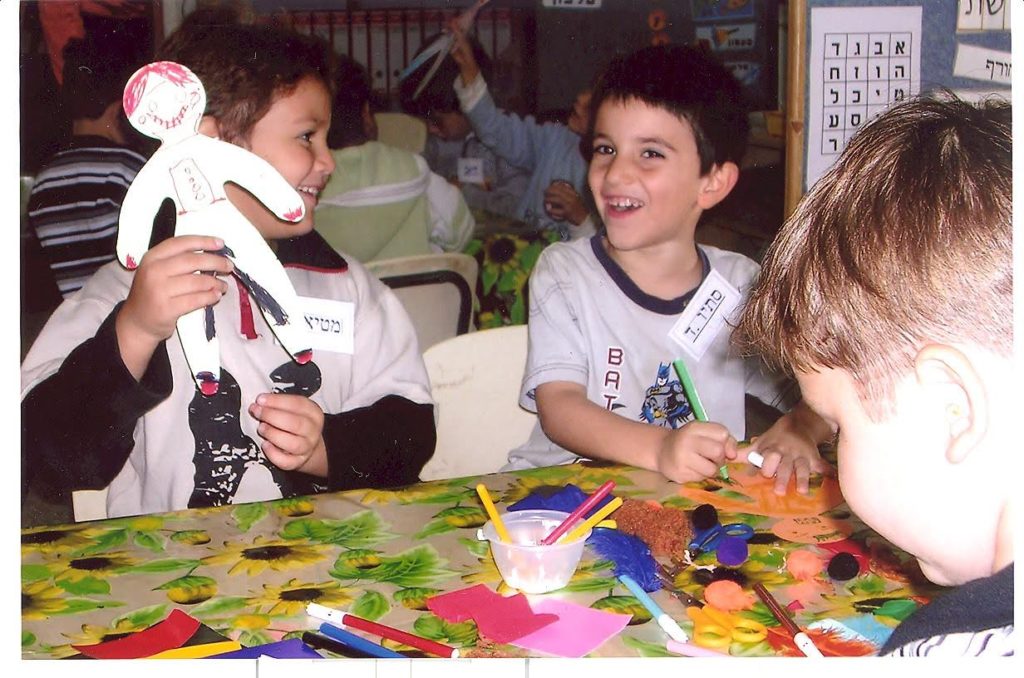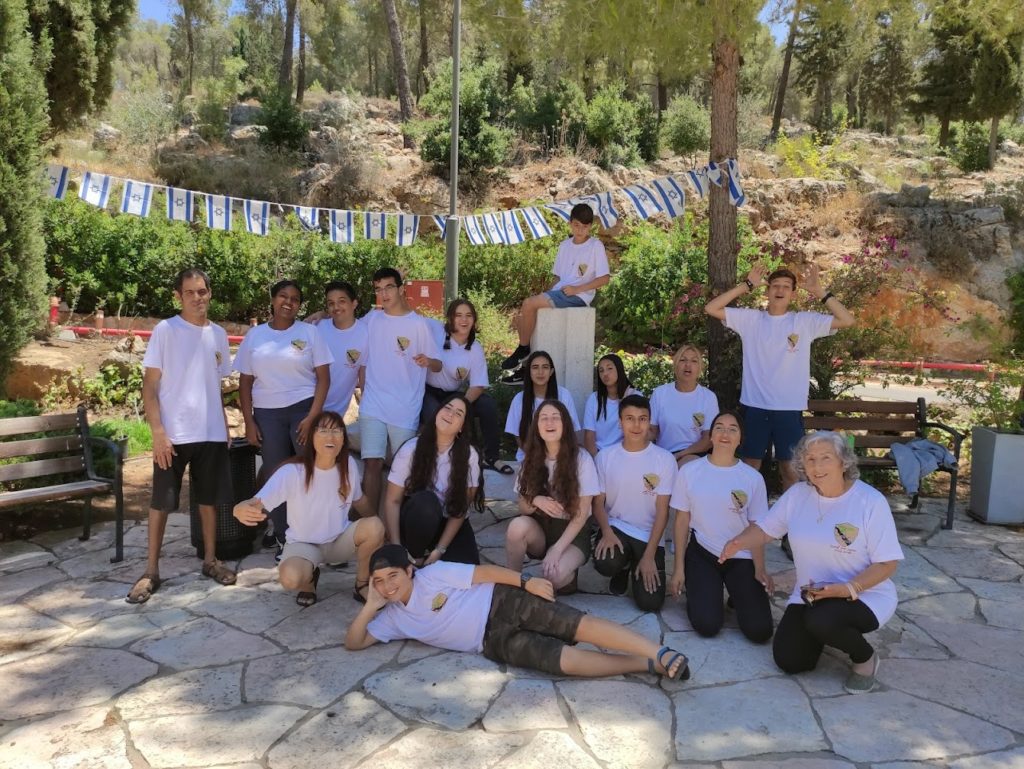
Dear All,
Many of you have reached out to check in and see how I’m doing, how we’re doing.
Thank you for your concern and caring. It means a great deal to me, to us.
In a sentence, we’re safe, yet heartbroken. We’re fine, but not okay.
Israeli society is enduring very difficult times since the brutal attack on the communities near the Gazan border and other cities throughout Israel. The level of cruelty carried out against children, elderly, young people and security personnel has left those of us who believe in human goodness amazed, pained and angry. We’re gravely concerned about the 230 hostages including babies, elderly and peace activists with whom we have had long-standing relations for many years. Our hearts are broken for the 1400 who were killed and the hundreds who were injured. The personal and collective trauma is great. For example, Kibbutz Be’eri has 107 residents killed or lost/kidnapped – that’s almost 10% of their inhabitants. That is proportional to New York City losing 800,000 people. (The numbers may have gone up – it’s so hard to keep track of it all.)
Some of you have asked about how you can help. What particular projects can you support to have an impact and foster wellbeing?
As many of you know, our nonprofit has been working in the field for more than thirty years, including extensive educational programs in southern Israel. In addition to general digital programming that we’re tailoring for students, teachers and parents nationally to address these especially challenging times, we’re focusing on two communities with whom we have a longstanding relationship and where we can have a valuable and direct impact.
1. TEEN LEADERS IN OFAKIM– We have a particularly warm, strong relationship with the Hosen Resilience Center’s Democratic Youth Leaders in Ofakim, a low-income city on the Gazan border. Ofakim suffered 50 casualties in this horrific war, and many residents were injured (Population 33,519).
The Democratic Youth Leadership group is an amazing cross-generational multi-ethnic group comprising Ashkenazim, Mizrachim, Ethiopian Israelis, neurotypical participants with an older participant with disabilities, different socioeconomic backgrounds and faith identities. We’ve run seminars on democratic principles, conflict resolution/mediation, and the connection between democracy and environment. It’s foundational work for teens who live in Israel’s geographic, economic and social periphery, disadvantaged in several realms. These acute disparities shape social status, income, access to education and social services. We wanted to equip young people with tools to bolster their education and afford them tools for social change. It’s been a great success.
Now we seek to give them a calm, peaceful place to heal. They love coming to the soothing pastoral Jerusalem Forest, where our offices are located. It’s near Yad Vashem, an ocean of greenery and quiescence. We’d like to raise money for a wellbeing seminar after the war that will allow them healing togetherness time in familiar surroundings. A one-night seminar including accommodations costs $5000. If we raise more, we can extend it to two nights or do a second seminar. If the spirit moves you, you can support these programs via this link or share with anyone else who’d like to do so.
Here’s a photo of the teens in the lovely forest during brighter days and more peaceful times.

I also want to share some video links that the teens prepared from previous seminars: this uplifting video preceded a seminar; this video captured the environmental seminar, and this link captured a previous seminar Ofakim.
2. BEDOUIN YOUNG LEADERSOur eyes and hearts are also with the Bedouin villages, recognized and unrecognized, in the Southern Negev desert, where we’ve run educational programming and have many colleagues and friends. The victims of the October 7th attack by Hamas include 19 members of the Negev Bedouin Arab community and 7 hostages. Many live below the poverty line, and about half live outdoors. They lack proper protective structures, and Bedouin children were also killed. Some 60 percent of the community is under 18.
In the past two years, the Adam Institute has run educational programs for the student leadership program of Desert Stars Institute, which brings together mission-driven young people to realize their individual and collective potential as change-making leaders. The programs are especially important because the economic, social and civic disparities are even more amplified among the Bedouin population, with its patriarchal tradition and complexity of its socio-demographic structure.
About 130 Bedouin young leaders were given democratic tools for social change, using “Betzavta- Adam Institute’s facilitation method“. For many, this was the first time to explore the right to equality, housing, civic rights, women’s rights, etc… They requested additional programs for this year, and we would like to accede that request. Here’s a photo from a previous seminar:

Learning happens through discovery – strengthening identity and granting legitimacy to all kinds of feelings/perspectives. Drawing on decades of experience, the Adam Institute is creating educational materials for students nationwide. That includes children.
3. CHILDREN’S LEARNING IN WARTIME: The Adam Institute’s programming for ages 5-8 comprises stories, songs, art and play to facilitate emotional expression, bolster a sense of belonging and validate difference in response to extreme situations. The program for ages 9-12, based on an experiential interactive exhibit, comprises games and educational tasks that teach discrimination, scapegoating, tolerance, diversity, and bullying. Participants learn equality, accepting difference, and the right to dignity; they’re encouraged to draw on personal experience. Both programs are suited to learning at home, in the classroom, or on Zoom.

Investing in youth is investing in our future. In the aforementioned examples, the youth leadership share lessons learned in Adam Institute seminars with peers in their programs, classrooms and communities, adding resonance and value. Children are given tools to process complicated events and their feelings in creative and constructive ways, with the support of their teachers and parents.
In times of war and distress, communal resilience provides a vital source of strength. We are a part of that right now. The young democratic leaders tell us that programs like ours helped foster solidarity and bolstes their ability to withstand extreme situations, like we’re facing today.
Initiating these projects is an attempt to do good for some young people who are going to need it. They’ve already told us as much. Helping children process these very trying times is also an overriding goal of ours.
Great educational responsibility rests on our shoulders. We’re committed to doing it. We’ll vigorously continue our work to promote Israeli democracy, shared living between Israeli Jews and Arab citizens of the state, and peace with the countries of the region.
It may sound lofty, but we know that there is no other way forward.
I won’t lie. These are painful and scary times.
We’d greatly welcome your partnership and support. This link takes you to our donation page, with various currency options available. Every sum will be allocated towards healing and building our future.
Please feel free to share this email with friends and individuals for whom our message might resonate. You may sign up for your mailing list via this link.
May we know better days.
In gratitude,
Uki
Executive Director
The Adam Institute for Democracy and Peaces
ukimaroshek@gmail.com/uki@adaminstitute.org.il

Uki Maroshek-Klarman Adam Institute for Democracy and Peace’s executive director and one of its founders. She created “Betzavta – Adam Institute’s facilitation method” to make democracy education accessible to all. The method offers engaging, experiential learning rooted in philosophy, sociology, social psychology—and fun. Dr. Maroshek-Klarman has developed numerous programs on democracy, civic and peace education and published books and articles. She has a doctorate in political philosophy from Tel Aviv University.
czytaj więcej
Will 2023 be the year of improving relations between Albania and South Korea?
In April 2021, the 30 years of establishing diplomatic relations between the Republic of Korea (ROK) and Albania was officially organized in the South Korean embassy in Athens, the capital of Greece. The localization of these official festivities perfectly pictured the nature of the relations between these two countries.
Nicolas LeviThe Dasgupta Review on Women and the Environmental Crisis
Commissioned in 2019 by the British government and published in February 2021, The Dasgupta Review has been likened to the 2006 Stern Review. Where the latter brought to widespread attention the many failings of the world economy in the face of global warming, the former makes similar points as regards biodiversity – and identifies the unique challenges faced by women.
Dawid JuraszekWe would like to inform, that Observer Research Foundation has published article of Patrycja Pendrakowska - the Boym Institute Analyst and President of the Board.
Patrycja PendrakowskaTime for a new normal – enhancing Europe’s military profile in the Indo-Pacific in 2025
2024 witnessed a notable stepping up of Europe’s military profile in the Indo-Pacific. Building on these developments, 2025 should be a year of continuation, bringing even more defence engagement of European states with their Indo-Pacific partners.
Jakub WitczakThe Boym Institute message to Indian policymakers and analysts
India’s current position towards the Russian invasion on Ukraine may damage its reputation as a major force of peace in the world
Online Course: “Conflict Resolution and Democracy”
The course will be taught via interactive workshops, employing the Adam Institute’s signature “Betzavta – the Adam Institute’s Facilitation Method“, taught by its creator, Dr. Uki Maroshek-Klarman. The award-winning “Betzavta” method is rooted in an empirical approach to civic education, interpersonal communication and conflict resolution.
Patrycja Pendrakowska as a founding member of the WICCI’s India-EU Business Council
By sharing knowledge, business opportunities, and best practices the Council generates awareness of women's contributions in developing the India-EU relations.
The Global Waste Trade: Unveiling Waste Colonialism in Southeast Asia
Although 19th-century colonialism may seem like a relic of the past, the global community continues to grapple with its modern counterparts, often referred to as neo-colonialism.
Andżelika SerwatkaTaiwanese Perceptions of Russia’s Ukraine war
Since the invasion of Ukraine, the Taiwanese government remained committed to its position of condemnation for Russia, humanitarian support for Ukraine, and deep appreciation and admiration for the Ukrainian people’s will to defy power, resist aggression, and defend their nation.
Kuan Ting ChenNot only tests and masks: the history of Polish-Vietnamese mutual helpfulness
On the initiative of the Vietnamese community in Poland and Vietnamese graduates of Polish universities, our country received support from Vietnam - a country that deals with the threat posed by Sars-Cov-2 very effectively.
Grażyna Szymańska-MatusiewiczAssessing the New U.S. National Security Strategy: Key Takeaways on Asia
On 4th December 2025 the Donald Trump administration released the new National Security Strategy (NSS) of the United States of America. What are the key takeaways on Asia?
Jakub WitczakMeeting with Dr. Uki Maroshek-Klarman
It’s a great pleasure for the Boym Institute to organize an open meeting with dr Uki Maroshek who founded the betzavta method. Betzavta is taught across the globe at the Adam Institute for Democracy and Peace in Jerusalem as well as in other institutions in Europe and the Middle East.
Young Indo-Pacific: Forward-looking perspectives on the EU Indo-Pacific Strategy
The Boym Institute, working with other think tanks, organizes panel discussions on topics related to the European Union's Indo-Pacific strategy
Book review: “North Korea’s Cities”
Book review of "North Korea’s Cities", written by Rainer Dormels and published byJimoondang Publishing Company in 2014.
Nicolas LeviNavigating tomorrow – the significance of Australia’s navy build-up
Australia has recently announced a plan to build the largest fleet since World War II. This move constitutes another step in Canberra's shift of defence strategy and commitment to adapt to the changing security environment.
Jakub WitczakTSRG 2021: The Impacts of the BRI on Europe: The Case of Poland and Germany
It is important to contribute to the understanding of what the New Silk Road can mean in economic, political, leadership and cultural terms for the European countries involved. This analysis should reveal the practical consequences of the Belt and Road Initiative for Europe in the case of Poland and Germany, as well as their respective social effects.
New Female Prime Minister Faces Thailand’s Political Turmoil
Thailand, known for military coups, political downfalls, and dashed democratic hopes, has a new Prime Minister. Paetongtarn Shinawatra is not only the youngest elected Prime Minister in the country's history and the second woman to hold this post, but she is also a member of the Shinawatra political dynasty.
Andżelika SerwatkaAsia-Integration – Follow-up Report on Polish Policy Challenges Towards Asian Countries
The debate was the consequence of positive reactions to the open letter that the Boym Institute published in the summer of 2020. Many of its readers pointed out the necessity of broad consultations regarding the principles of the new multidimensional policy in order to reflect the diversity of perspectives, interests and conditions.
How to deal with gender-based segregation?
Interview on the project Supporting the Economic Empowerment of Afghan Women through Education and Training in Kazakhstan and Uzbekistan. Magdalena Sobańska-Cwalina and Krzysztof M. Zalewski (The Boym Institute) in discussion with: Yakup Beris, Johannes Stenbaek Madsen, Maria Dotsenko, Gulnar Smailova,
Zespół Instytutu BoymaBook review of "GDR International Development Policy Involvement. Doctrine and Strategies between Illusions and Reality 1960-1990, The example (South) Africa", written by Ulrich van der Heyden and published by Lit Verlag in 2013.
Nicolas LeviWomen in Public Debate – A Guide to Organising Inclusive and Meaningful Discussions
On the occasion of International Women's Day, we warmly invite you to read our guide to good practices: "Women in Public Debate – A Guide to Organising Inclusive and Meaningful Discussions."
Ada DyndoPolish-Macanese Artist Duo Presents New Works in Lisbon
Artist couple Marta Stanisława Sala (Poland) and Cheong Kin Man (Macau) will present their latest works in the exhibition “The Wondersome and Peculiar Voyages of Cheong Kin Man, Marta Stanisława Sala and Deborah Uhde”, on view at the Macau Museum of the Macau Scientific and Cultural Centre (CCCM) in Lisbon, from 5 June to 6 July 2025.
Ailuna Shamurzaeva – Research Fellow at the Boym Institute
Her research focuses on political economy, migration studies, and international trade. Ailuna, we are more than happy to welcome you to the team!
Indian dream – interview with Samir Saran
Krzysztof Zalewski: India is a large country, both in terms of its population and its land area, with a fast-growing economy. It is perceived as a major new player on the global stage. What would the world order look like if co-organized by India? Samir Saran: India’s impact on the world order is already significant, but […]
Krzysztof Zalewski

